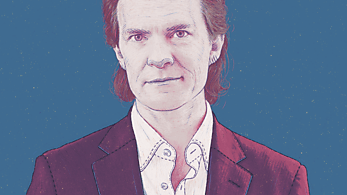“That really disturbed me,” Joe recalls.
A decade later, in 1963, Joe received another blow to his freedom to choose when he was drafted into the peacetime military as a 25-year-old with a new bride. Until then, Joe had been working in a high-tech job with complex computer systems.
“The first computer I worked on had 400 vacuum tubes and went down into a nuclear submarine,” Joe says. “And with my experience, after I was drafted, they made me a radio repairman.”
Not only had he been forced into something against his will, but the government declined to even use his talents while he was there.
These events are connected to a question Joe has continued to ask repeatedly throughout his life, which speaks to his principled individualism: “Who decides?” If it’s someone else making the choices for him, Joe, like many Cato Sponsors, becomes wary.





